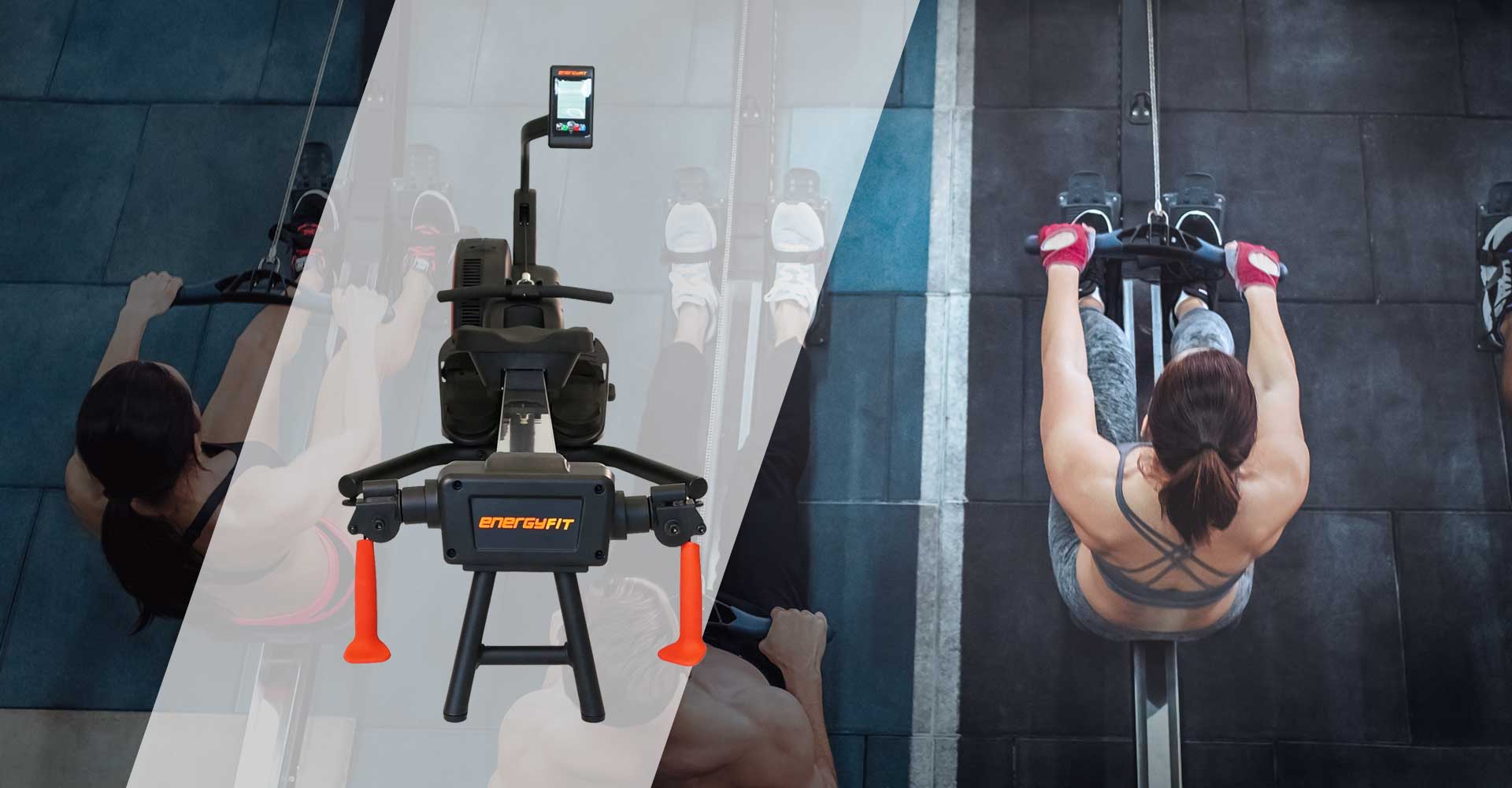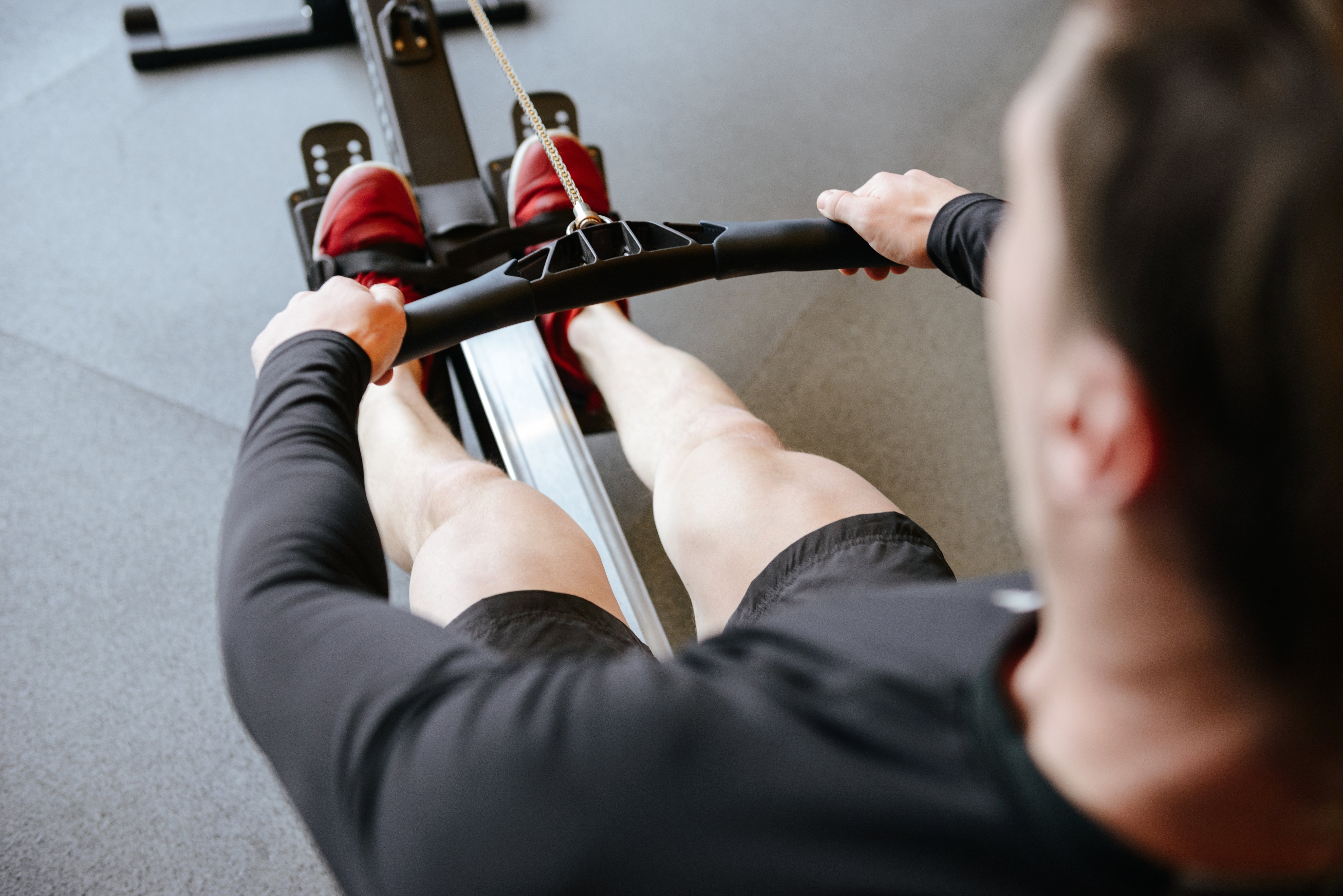When you think about cardio workouts, you might feel overwhelmed at the thought of needing a treadmill or outdoor place to run, a pool to swim in, an elliptical, a row machine, a gym, or even just weights--whether you're a beginner or an expert personal trainer.
You might be excited to learn that even though all of these things are helpful and provide excellent workouts, you do not need any of this to complete your exercise. In fact, you do not even need a certain location! We hope that this article will help you discover both the convenience and capability of completing an at-home cardio workout.
When it comes to at-home cardio workouts, your options are endless! All you need is yourself and a little area of the room to jump around and have a good time! You don't even need an exercise mat. This cardio workout might involve a high-intensity interval training or HIIT routine, or you might find yourself enjoying one of the workouts below.
Whatever it is, do not skip on your cardio with the excuse that you are unable to do it for this reason or that. Take 20 minutes, 30 minutes, or even an hour out of your day to complete a cardio workout. You might just find that your overall days are better when you take this time for yourself and your health!
Why Is Cardio Important?
Cardio exercise is most well known for the positive effect it has on the heart muscle. You might not realize the number of health benefits it has on other parts of the body, too, including the:
-
Brain and joints: Improves blood flow and thought processes and supports joint cartilage health and function for the hips, knees, and elbows.
-
Skin, muscles, and weight: Assists in circulation, supports skin health, assists in maintaining a healthy weight, and supports metabolic functioning. It maintains healthy muscular weight in the thighs, hamstrings, and quads.
-
Pancreas, lungs, and blood: Assists in controlling blood sugar levels, supports healthy metabolic function and maintains normal cholesterol levels.
-
Mood: Eases feelings of stress and tension and supports emotional well-being.
-
Sleep and energy: Supports overall sleeping patterns.
How Often Should I Do Cardio Workouts?
While this differs per individual and what their schedule allows, it is recommended that you engage in a minimum of 150 minutes of moderate aerobic activity or 75 minutes of intense aerobic exercise weekly, including a warm up.
Moderate exercise can entail swimming or a fast walk, while intense aerobic exercise includes biking or running. You should choose your level of intensity based upon what your body can handle. For example, a high plank position isn't a dynamic workout but some still consider it high intensity. The stair climb is relaxing to some and very boring for others.
You might find that you start with moderate aerobic exercise for 100 minutes a week, then slowly increase this until you hit 150 minutes.
Next, you might decide you want to lower the amount you do each week while increasing the intensity of the exercise itself. What is nice about cardio workouts is that you are not tied down into anything specific. You can choose to have a less intense day on Friday because of being tired after work, then decide to have a more intense day on Saturday because you are off work and feeling ready!
Do not forget to take rest days! As important as engaging in cardio exercise is, it is equally important to give your muscles and body time to relax and rest. This is why 75-150 minutes is recommended so that you can best determine how to fit this exercise time between the days of the week while also providing yourself times of rest.
What Are Some Tips Regarding Cardio Workouts?
-
Do not forget to stretch and warm-up! Going right into a workout without stretching and getting the muscles warm could lead to muscular injury. Take some time to fit this into your workout routine and make it a priority. Dynamic exercises are the perfect warmup for cardio workouts.
-
Do not forget to stretch and cool down! Just as with warming up, it is important to give your body time to slow down post-workout. Static exercises are the perfect cooldown for cardio workouts.
-
Supply your body with the proper nutrients and fluids before and after working out.
- Give yourself time and patience to build up to a more intense cardio workout. Find a balance in your routine- do not push yourself too hard to the point of injury and do not settle for always doing the bare minimum. Additionally, don't forget to alternate to both sides of the body--right leg to left leg, right foot to left foot, and so on. Start slow with your cardio and increase it from there.
What Are Some At-Home Cardio Workouts and What Muscles Do They Target?
Many different exercises can be performed to get a good cardio workout in. Try combining several of these moves to get the most out of your exercise routine:
-
High knees: This targets your leg muscles and heart as you run in place and lift your knees to your chest.
-
Butt kicks: This targets your leg muscles and heart as you run in place and lift your heels to your butt.
-
Lateral shuffles: This move involves shuffling side to side in order to work your leg muscles as well as target your heart.
-
Crab walk: This exercise targets the upper arms as well as the legs, abdominal, and back muscles.
-
Standing oblique crunch: This move works your abdominal muscles as you pull your knees up to your side.
-
Speed skaters: This exercise works your legs as you step or jump from side to side.
-
Jumping jacks: This move will work every muscle in your body while bringing up your heart rate as well.
-
Toe taps: This move works the legs and heart - ensure that you have a curb or low step available!
-
Squat jumps: This is a lower-body explosive cardiac move that will quickly increase the heart rate.
-
Standing alternating toe touches: This is a full-body workout specifically working the arms, legs, and abdominal muscles.
-
Lunge jumps: This is also a great cardiac move designed to increase your heart rate and work your legs.
-
Box jumps: This exercise works your butt, calves, shins, and thigh muscles - make sure you have a short box available for jumping!
-
Plank jacks: This exercise works the entire body as you turn the traditional jumping jack into a move that fully works your arms as well.
-
Mountain climbers: This move can be difficult for those that are new to cardio workouts. Start slowly and progress as tolerated. This full body move is bound to increase your heart rate!
-
Plank ski hops: This move combines rotational jumps and planks and targets every muscle in your body.
-
Diagonal jumps: This exercise works your lower body as you take the lunge jump and intensify it by twisting your body with each jump in order to increase your heart rate.
-
Rotational jacks: If you love jumping jacks, squats, and body twists, why not combine them all in order to target every muscle in your body as well as increase your heart rate?!
-
Burpees: This exercise combines a pushup, jump, and squat to hit every muscle in the body and increase the heart rate.
-
Inchworm crawl: This full-body exercise increases the heart rate while working every muscle!
Summing It Up
Cardio workouts are important to your overall health, burn calories, carry many health benefits, and should be a part of your weekly routine. Remember your list of options when it comes to your cardio routine, and do not let yourself get bored with it! Choose several of the moves above and combine them in sets to get the most out of your workout. Start slower and easier and increase in duration and intensity as you feel able. You might just find that you start enjoying your workout routine instead of dreading it!
Sources:
From Head to Toe: The Benefits of a Cardio Workout
13 Benefits of Aerobic Exercise: Why Cardio Fitness Is Important





Leave a comment
All comments are moderated before being published.
This site is protected by hCaptcha and the hCaptcha Privacy Policy and Terms of Service apply.